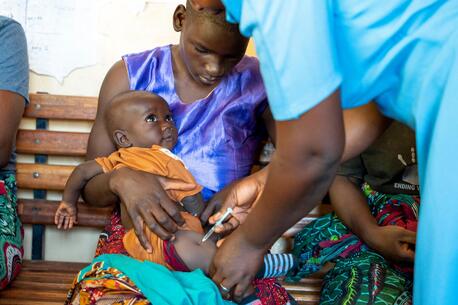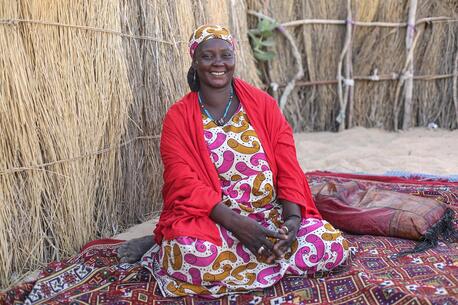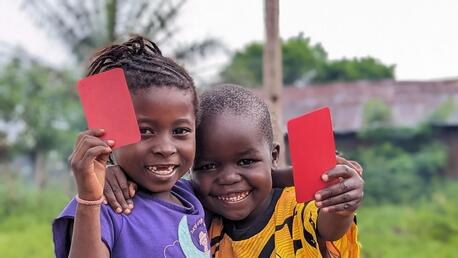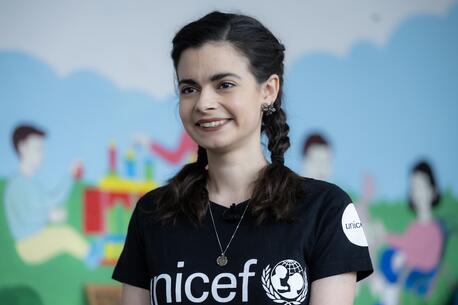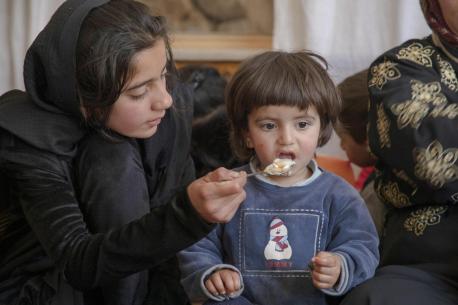
Malnourished Children: How UNICEF Fights Child Hunger
Hundreds of millions of children are malnourished or undernourished — harming their ability to survive, thrive and reach their full potential. Learn more about how UNICEF is improving child nutrition globally and how to support this lifesaving work.
Sustainable Development Goal 2: zero hunger
UNICEF works with partners around the world to support child nutrition — and to end child malnutrition — to give every child a chance to grow up healthy and strong.
Ending child malnutrition is critical to achieving Sustainable Development Goal 2, a commitment by the global community to end hunger and malnutrition in all forms. For a number of economic, political and social reasons, however — a global food crisis linked to the war in Ukraine, other prolonged conflicts, supply chain issues, runaway inflation — the world is not on track to meet this goal.
There were more than twice as many people facing crisis levels of hunger worldwide in 2022 compared to 2019 – with 44 million reported to be at risk of famine. And the economic costs of undernutrition are significant — estimated at $3 trillion in lost productivity annually.
Read on to learn about how UNICEF is reaching the most vulnerable children and families with lifesaving aid, and how you can support child nutrition by supporting UNICEF.
What is malnutrition?
Malnutrition in children manifests in a few different ways. There is undernutrition, sometimes called hidden hunger, a matter of poor diet. Over 340 million children under age 5 suffer from deficiencies that delay growth, weaken their immune systems and impair brain development.
There is child stunting, when a child is short for his or her age. An estimated 144 million under age 5 are stunted, or too short for their age. These children risk lasting effects on their cognitive development, hindering their ability to learn and contribute fully to society.
There is child wasting, when a child is significantly underweight. Worldwide, an estimated 47 million children are suffering from wasting disease, which is life-threatening. These children require immediate treatment and care to survive.
Children who are overweight are also considered malnourished. Globally, there are approximately 38 million children under age 5 who are overweight. Their numbers are increasing around the world, particularly in middle-income countries, largely due to increased consumption of processed foods that are high in fat, sugar and salt.
All forms of malnutrition threaten a child's ability to survive and thrive. Well-nourished children do better in school, are better able to participate in their communities and are more resilient against disease, disasters and other emergencies.
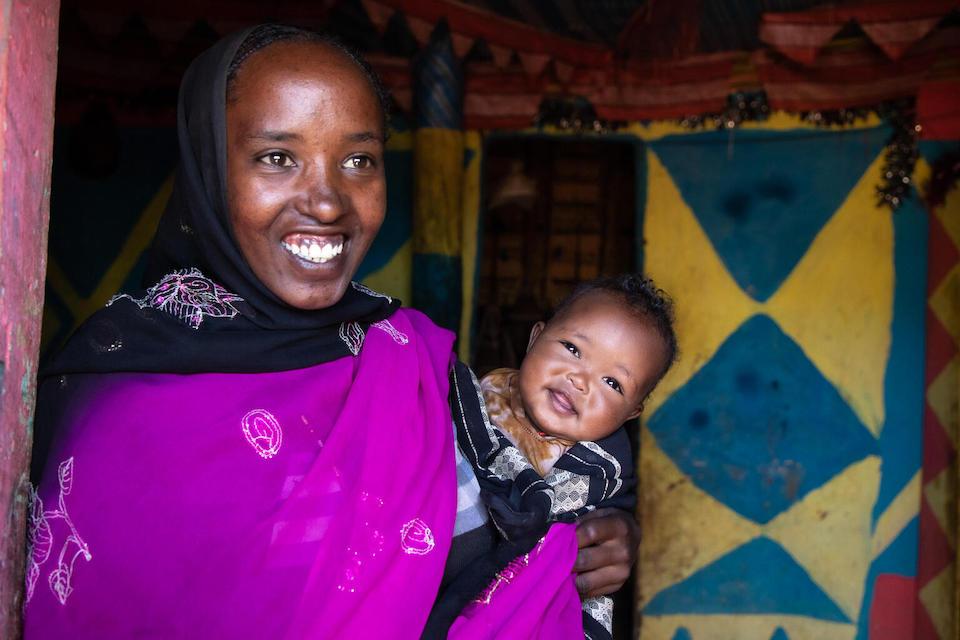
The difference between malnutrition and hunger
Malnutrition often stems from lack of food, but not always. UNICEF focuses on ensuring proper nutrition for children, working in tandem with partners such as the World Food Program to meet the needs of hungry kids as well as those who have food to eat but are not getting enough vitamins and minerals and other nutrients that are essential for healthy growth.
UNICEF also spearheads nutrition programs for adolescent girls and women that help ensure their own as well as their future children's good health and well-being.
What causes malnutrition in kids?
Poor diet is a leading cause of malnutrition in its many forms.
Children’s diets are shaped by multiple forces, such as poverty, which limits a familiy's ability to purchase affordable, nutritious foods. Lack of education or awareness of what constitutes adequate nutrition for a growing child is another factor.
Risks of malnutrition are also magnified in times of crisis: natural disasters like the earthquakes in Syria and Turkey, catastrophic floods in Pakistan, climate shocks such as severe drought in the Horn of Africa, and wars in Ukraine and Yemen and elsewhere have left tens of millions of children food insecure.
Public health emergencies can also affect child nutrition. School closures during the COVID-19 pandemic, for example, kept millions of kids from receiving school meals, for many their one nutritious meal of the day. One of the pandemic's knock-on effects was that it destroyed livelihoods; the economic fallout of this continues to have dire consequences for the most vulnerable children.
How UNICEF fights malnutrition
UNICEF works with partners in 130 countries to address global malnutrition — providing nutrition counseling, nutrition care and other support to improve the nutritional status of children and women who are facing hunger or who lack access to nutritious foods.
UNICEF also supports early detection and treatment for malnourished children. Early detection — teaching mothers, health workers and other community members to identify a child who is malnourished — is a top priority, and key to that child's successful recovery and avoiding permanent harm.
A child who is severely acutely malnourished, or suffering from wasting disease, needs immediate treatment and faces a serious risk of death. Left untreated, child wasting can be fatal.
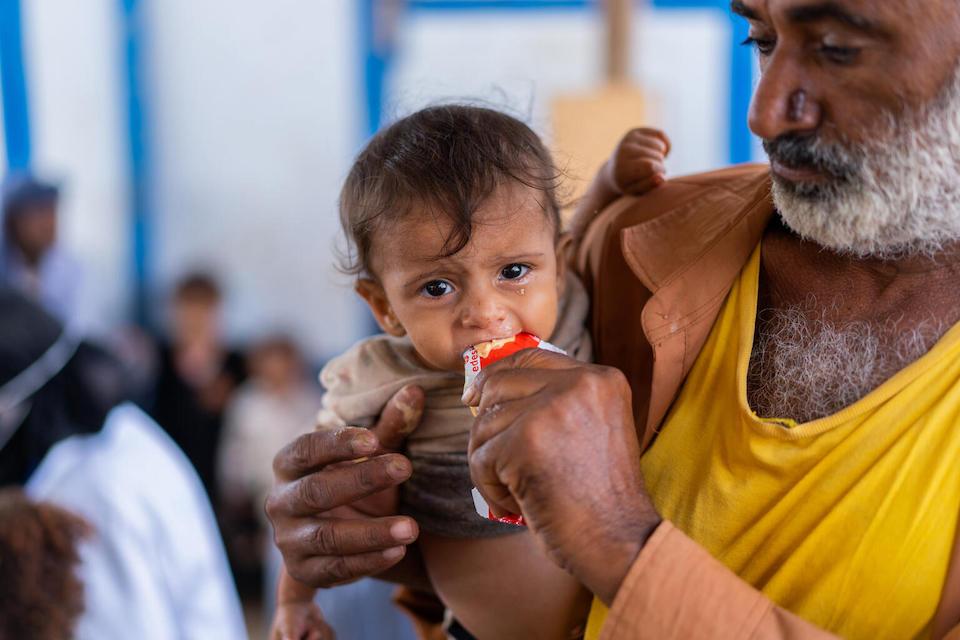
Nutrition counseling
UNICEF encourages best practices for newborn, infant and child feeding, working with partners at the community and local level to provide information and training. This includes:
Breastfeeding support
Promoting the benefits of breastfeeding has long been an integral part of UNICEF's mission in child nutrition. It's free, builds a baby's immunity, gives them everything they need to grow and thrive, and reduces future health risks. UNICEF also helps women access the support they need to breastfeed — from peers, health care professionals, lactation consultants or other specialists.
Thanks in part to UNICEF's ongoing efforts, exclusive breastfeeding is up 50 percent worldwide since the early 1980s.
Micronutrient supplements
UNICEF supplies different types of supplements, including micronutrient powders that can be sprinkled on top of a child's meal and multivitamin tablets containing the iron and folic acid that adolescent girls and women need to prevent anemia and otherwise ensure good health. This protects them and also their future children.
Half of all stunting in children under 2 years originates during pregnancy or in the first six months of life — when the child is dependent on the mother for nutrition. "Unless we improve the nutrition of adolescent girls and women, we are unlikely to end child undernutrition," Harriet Torlesse, UNICEF Nutrition Specialist, explains.
Nutrition screenings
Screening children and pregnant women who are at risk of malnutrition is an important preventative measure that helps catch cases early and ensure timely treatment and full recovery.
UNICEF supplies MUAC measuring tapes — short for mid-upper arm circumference — to caregivers, health care providers and other frontline workers along with guidance on the importance of early detection and response.
Social protection (humanitarian cash transfer programs)
Many UNICEF assistance programs that provide cash payments to families so they can meet urgent needs for food and other basics are helping to improve child nutrition.
Ready-to-Use Therapeutic Food
UNICEF purchases and distributes approximately 80 percent of the world's supply of RUTF — a lifesaving treatment for children suffering from severe acute malnutrition, also known as severe wasting disease.
RUTF is a shelf-stable, nutrient-rich peanut paste. The recovery rate for children on a regiment of three packets of RUTF per day is 90 percent after about six weeks.
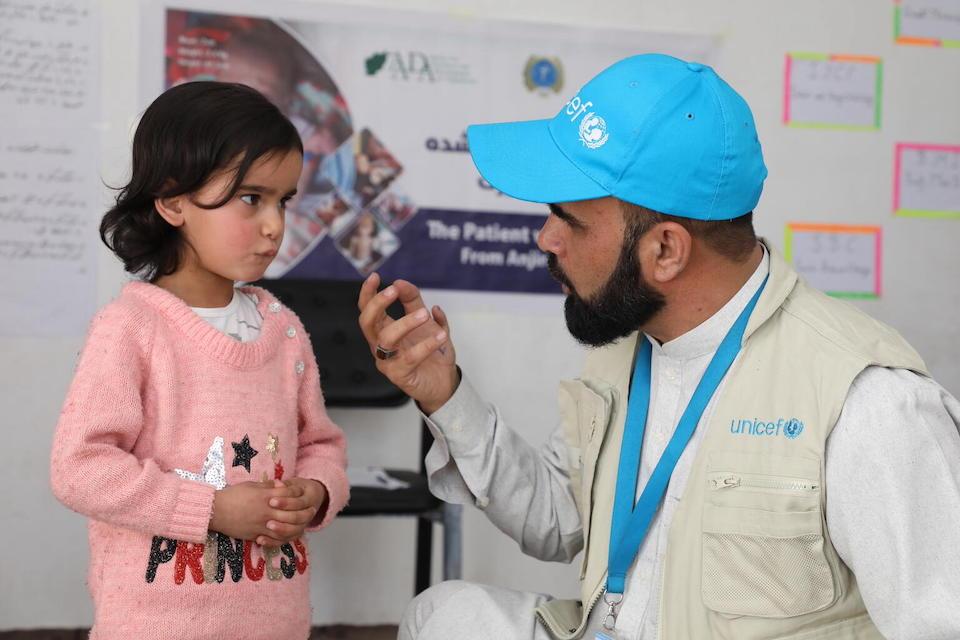
How you can help end child hunger
UNICEF partners at the global, regional and country levels to promote and strengthen nutrition policies, strategies and programs needed to achieve SDG 2. UNICEF leads in some capacity 10 separate global nutrition initiatives.
UNICEF's ongoing No Time to Waste appeal seeks donor support to help expand malnutrition prevention and treatment programs in 15 countries most affected by the global food and malnutrition crisis: Afghanistan, Burkina Faso, Chad, Democratic Republic of the Congo, Ethiopia, Haiti, Kenya, Madagascar, Mali, Niger, Nigeria, Somalia, South Sudan, Sudan and Yemen.
Supporting UNICEF's work helps improve nutrition for children and treat children who are malnourished. You can help. Donate today.

